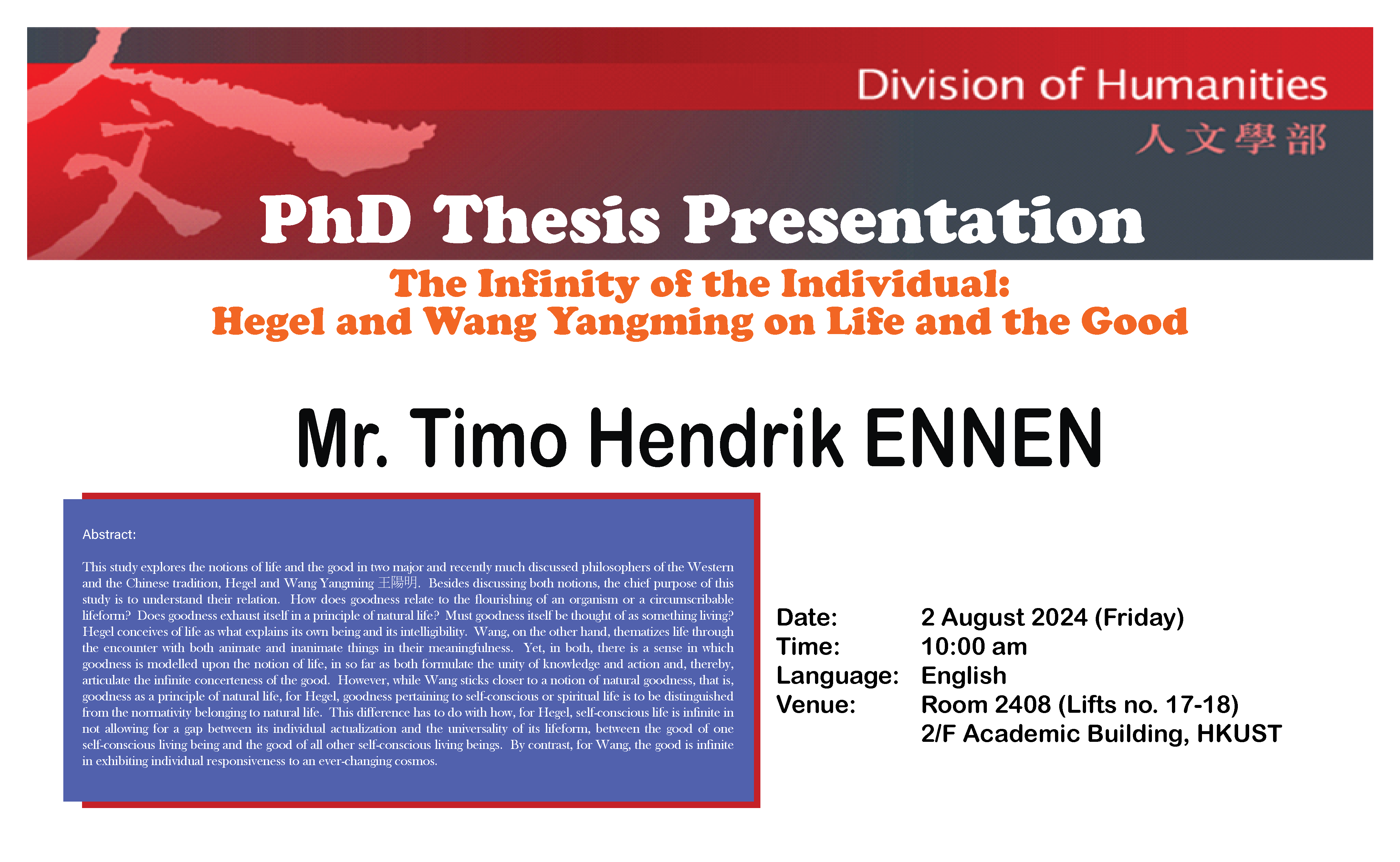Abstract
This study explores the notions of life and the good in two major and recently much discussed philosophers of the Western and the Chinese tradition, Hegel and Wang Yangming 王陽明. Besides discussing both notions, the chief purpose of this study is to understand their relation. How does goodness relate to the flourishing of an organism or a circumscribable lifeform? Does goodness exhaust itself in a principle of natural life? Must goodness itself be thought of as something living? Hegel conceives of life as what explains its own being and its intelligibility. Wang, on the other hand, thematizes life through the encounter with both animate and inanimate things in their meaningfulness. Yet, in both, there is a sense in which goodness is modelled upon the notion of life, in so far as both formulate the unity of knowledge and action and, thereby, articulate the infinite concreteness of the good. However, while Wang sticks closer to a notion of natural goodness, that is, goodness as a principle of natural life, for Hegel, goodness pertaining to self-conscious or spiritual life is to be distinguished from the normativity belonging to natural life. This difference has to do with how, for Hegel, self-conscious life is infinite in not allowing for a gap between its individual actualization and the universality of its lifeform, between the good of one self-conscious living being and the good of all other self-conscious living beings. By contrast, for Wang, the good is infinite in exhibiting individual responsiveness to an ever-changing cosmos.
